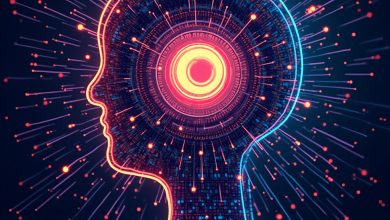The Dark Side of Artificial Intelligence

Introduction
Artificial Intelligence (AI) is a remarkable technology that is rapidly transforming our world. From self-driving cars to virtual assistants, AI has made our lives easier and more efficient. However, as we embrace these advancements, it’s essential to understand the darker aspects of this powerful tool. In this article, we will explore the potential dangers and ethical concerns surrounding artificial intelligence.
1. Job Displacement
One of the most significant concerns about AI is its impact on employment. As machines become more capable of performing tasks traditionally done by humans, many jobs may become obsolete. Some key points to consider include:
- Automation of Routine Tasks: Many jobs involving repetitive tasks, such as data entry or manufacturing, are at high risk of being automated.
- Shift in Skill Requirements: The job market may require more tech-savvy workers, leaving those without the necessary skills at a disadvantage.
- Economic Inequality: If AI leads to significant job losses, it could exacerbate economic disparities between different social classes.
2. Privacy Concerns
As AI systems become more integrated into our daily lives, the collection and use of personal data raise serious privacy issues. Here are some crucial aspects:
- Data Collection: AI relies on vast amounts of data, often sourced from individuals without their explicit consent.
- Surveillance: Governments and corporations can use AI for surveillance, leading to a loss of individual privacy and freedom.
- Data Security: Large databases of personal information are attractive targets for hackers, increasing the risk of identity theft.
3. Bias and Discrimination
AI systems are only as good as the data they are trained on. Unfortunately, biased data can lead to biased outcomes. Consider the following issues:
- Inherent Bias: If AI is trained on data that reflects societal biases, it may perpetuate discrimination against certain groups.
- Impact on Decision-Making: Biased algorithms can affect critical areas such as hiring, lending, and law enforcement, leading to unfair treatment.
- Accountability: It can be challenging to hold AI systems accountable for their biased decisions, complicating efforts to address these issues.
4. Autonomous Weapons
The development of AI in military applications raises ethical and moral questions. Key concerns include:
- Loss of Human Control: Autonomous weapons could operate without human intervention, leading to unintended consequences.
- Escalation of Conflicts: The ease of deploying AI-driven weapons may lead to more frequent and intense conflicts.
- Moral Responsibility: Questions arise about who is responsible for the actions of AI in warfare, complicating accountability.
5. Manipulation and Misinformation
AI’s ability to generate content and analyze data has both positive and negative implications. The darker side includes:
- Deepfakes: AI can create realistic fake videos or audio recordings, making it challenging to discern truth from fiction.
- Manipulative Advertising: AI can exploit personal data to target individuals with misleading information, affecting their decisions.
- Polarization: AI algorithms may contribute to the spread of misinformation, leading to increased societal divisions.
Conclusion
While artificial intelligence offers incredible potential, it also comes with significant risks that we must acknowledge. As we continue to innovate and integrate AI into our lives, it is crucial to address these dark sides. By fostering discussions on ethics, accountability, and regulation, we can work towards a future where AI benefits everyone while minimizing its potential harms. Understanding and addressing these challenges now will help us navigate the complex landscape of AI in the years to come.




